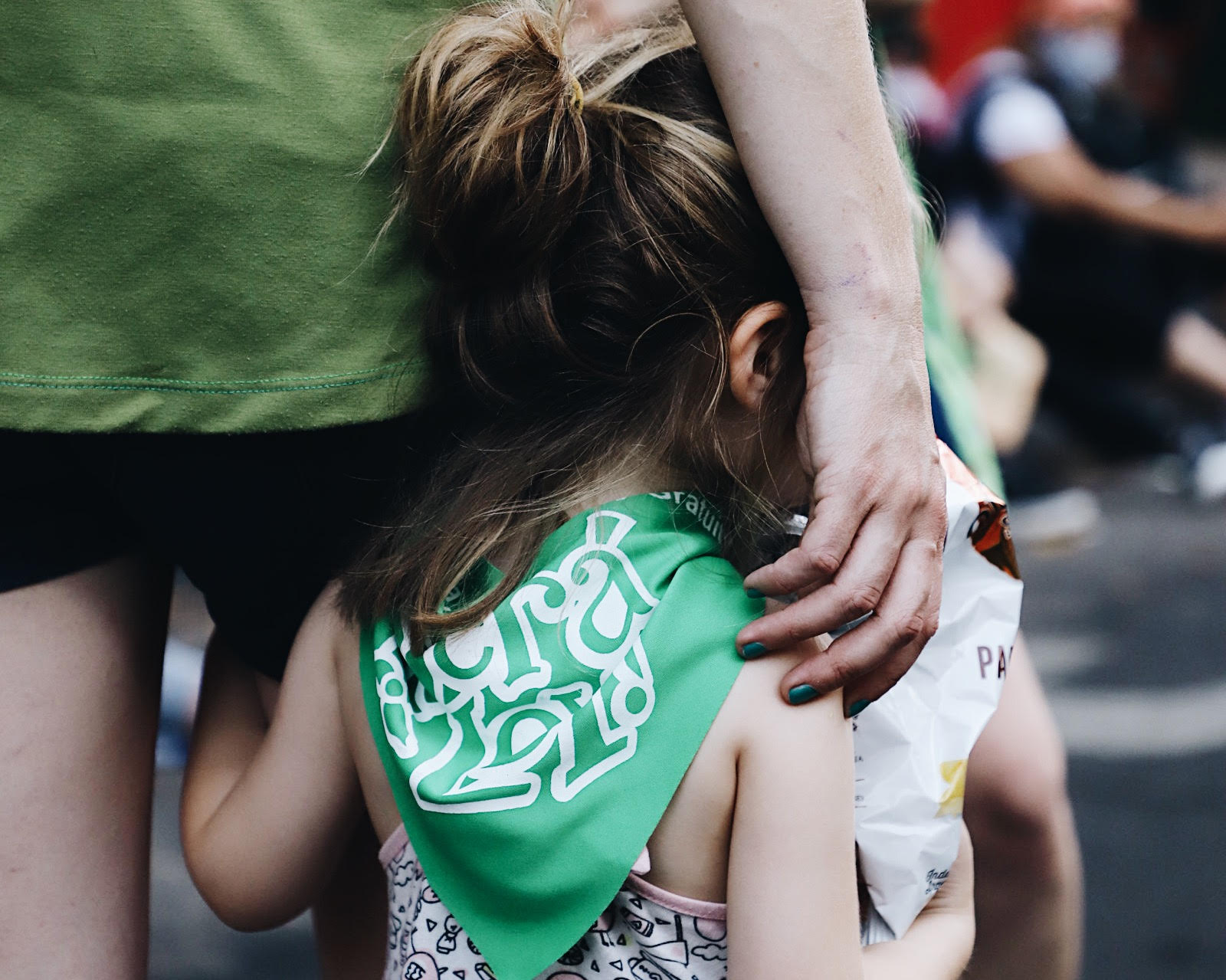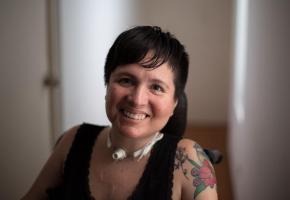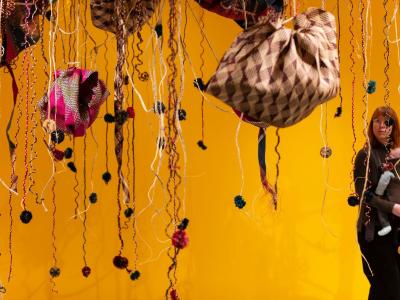Today, Wednesday 30 December 2020, Argentina became the third South American country to legalise elective abortions alongside Uruguay, French Guiana and Guyana. Latin America is recognised as one of the most restrictive regions for abortion rights in the world: terminations are only legal in Cuba (since 1965) and are permitted in Mexico City and the Mexican State of Oaxaca. However, times are clearly changing. At 4am on Wednesday morning, a landslide victory was announced for Argentina’s pro-choice campaigners as the abortion bill was passed by 38 votes in favour versus 29 against and one abstention.
Originally expected to achieve a narrow majority, the four previously undecided senators all opted to support the bill. The pro-choice resounding victory was projected on big screens in plazas across the country declaring ‘We did it!’ and ‘It’s law!’. The forty-year struggle of Argentinean feminists with a pandemic as the final hurdle reached a surreal eruption of celebrations with green smoke clouds and thousands of bandanas (the trademark of the pro-choice movement) thrown in the air.
Tears of joy among the ‘greens’ were accompanied by tears of sadness and anger among the pro-life campaigners who adopted the colour blue (also the colour of the national flag) as their emblem. Giant model foetuses, nuns and priests performing sermons in the streets were a stark reminder of the enduring power of the Catholic Church in Argentina, the birthplace of Pope Francis. Indeed, the Catholic Church had unsuccessfully called Senators to reject the bill in the name of the vulnerable unborn babies and were also supported by the growing evangelical movement in the South American country.
During the conservative presidency of Mauricio Macri (2015-2019), the bill had been passed by the lower house but narrowly rejected by the Senate in August 2018. However, Argentina’s current left-wing President Alfonso Fernández, who has been in power since December, declared that ‘the criminalisation of abortion has achieved nothing’ before swiftly bringing the bill to congress once again in November.
The President highlighted that over 3,000 women had died due to unsafe clandestine abortions in Argentina since the return to democracy (after the 1976-1983 dictatorship) labelling the poor, young women as the most vulnerable victims. The bill was later approved by the lower house earlier this month before finally being passed by the Senate during the 12-hour overnight debate from Tuesday night to Wednesday morning.
Argentina’s abortion bill legalises terminations within the first 14 weeks of pregnancy. Until now, abortion was only allowed in cases of rape or when a serious danger was posed to the expectant mother’s health according to the 1921 law. Considered a serious crime, clandestine abortions in Argentina were punishable by up to a 15-year prison sentence. Now, doctors will be endowed with the right to ‘conscientiously object’ to performing an abortion, although the law states that they will need to find a replacement doctor to carry out the procedure. Today, abortion in Argentina is therefore ‘Legal, Seguro y Gratuito’ (‘Legal, Safe and Gratuitous’).
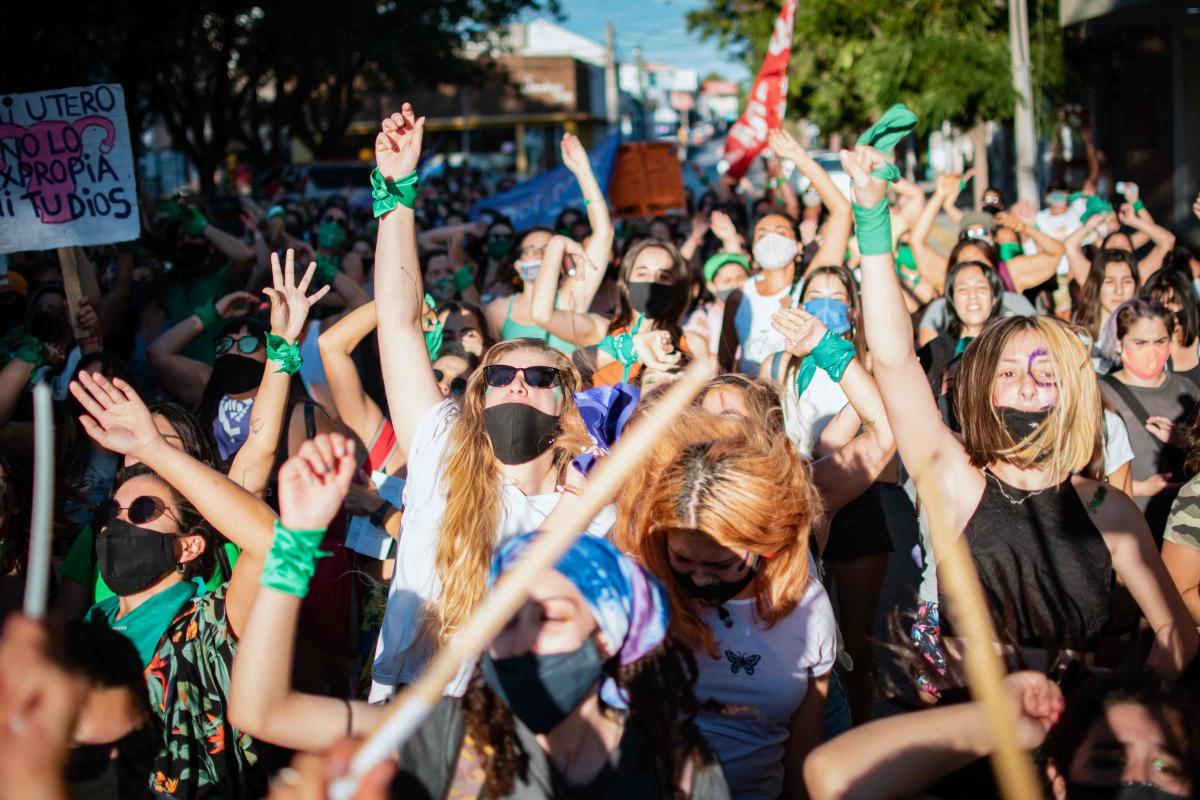 Photo by Santiago Garcia Diaz
Photo by Santiago Garcia Diaz
The History of the ‘Green Wave’
The green headscarves stand for more than just the legalisation of abortion. The final result on 30 December was preceded by five years of mass protests spearheaded by grassroots movements, notably the #NiUnaMenos (‘not one less woman’) campaign which shined an international spotlight on the issue of femicide. By merging their gender-based campaigns for bodily autonomy and safety, Argentinean feminists have demonstrated that strength comes in numbers and unity.
Argentina is home to a genealogy of ardent grassroots human-rights defenders since the return to democracy in 1983. The women wearing green headscarves outside Buenos Aire’s congressional palace have inherited the persistence and unity of the Mothers of the Plaza de Mayo who descended to the streets in their white headscarves and demanded truth and justice for their ‘disappeared’ children during the dictatorship.
Abortion rights in Argentina feed into a stream of gender-based rights which have been achieved by citizens over the last four decades including the rights to divorce, sex education, gay marriage, mental health, gender identity and fertility treatments.
The intergenerational plight to overturn Argentina’s authoritarian legacy was communicated through the mothers, daughters and friends who danced to music in the streets until dawn. The formerly taboo topic of abortion has been brought out of the shadows and under the public spotlight and has been identified as a public health issue by President Fernández.
The Argentinean National Health Ministry estimates that between 371,965 and 522,000 clandestine abortions are performed in Argentina per year and according to a Human Rights Watch report, almost 40,000 women and children were hospitalised in 2016 due to unsafe clandestine abortions or miscarriages. On the streets, the women in green are hopeful that access to abortion will be a turning point in the protection of the safety of women across the country.
Agostina Teves has been fighting for years in the streets of Mendoza (Argentina’s fourth-largest city) to ensure that her two young children are endowed with greater rights to bodily autonomy:
‘Last night, we achieved one less source of shame and one more source of freedom for our democracy. Among the tears and the laughter, we gave birth to this law thanks to the thousands of women who came before us, many of whom lost their lives along the way.’
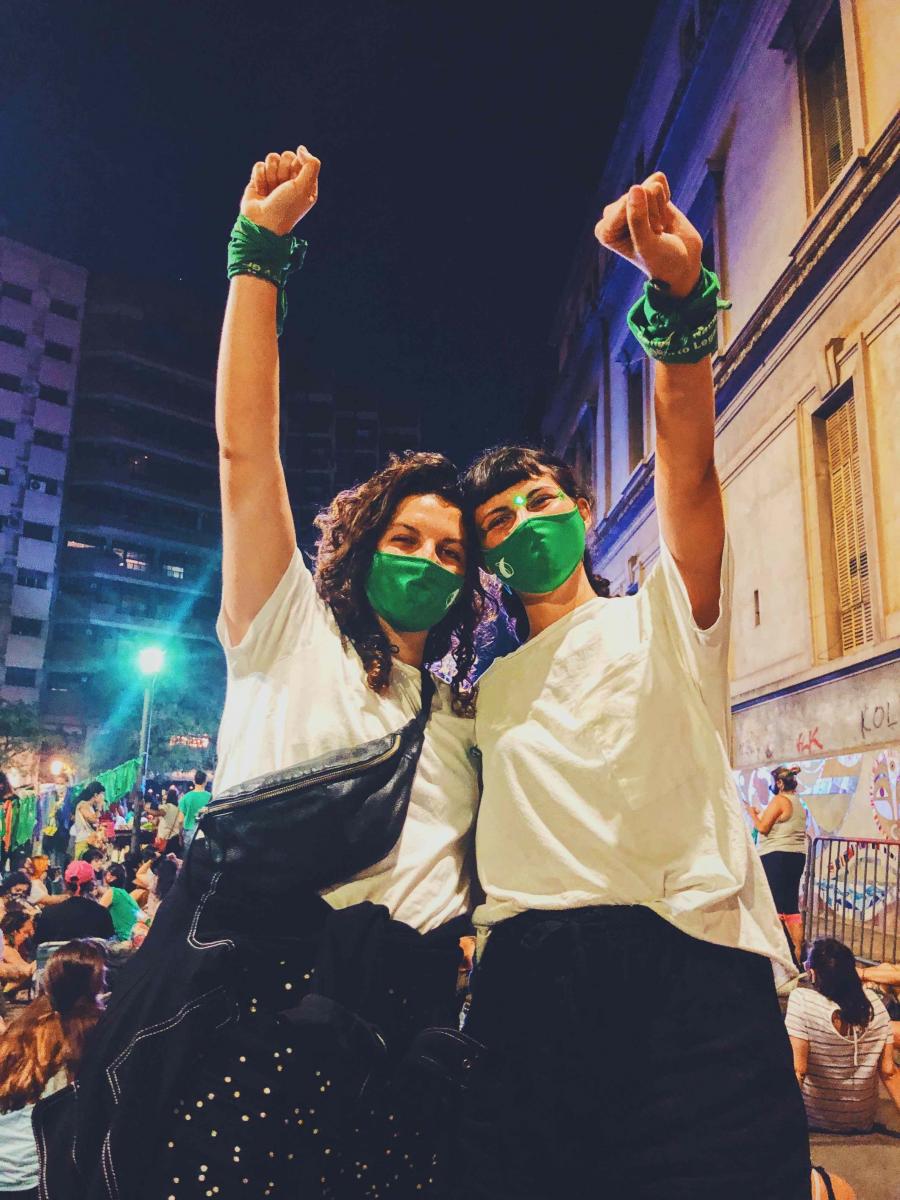 Julia Crutchet
Julia Crutchet


